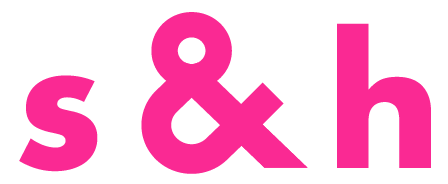RAPP UK and Harnessing The Power of Q™
We always love hearing your success stories for pitches and client wins, we especially love hearing them when they involve Q™! One of our Omnicom sister agencies, RAPP London, recently had a big win with PayPal.
We were able to catch up with Andrew Riddle, Managing Partner, and Jamie Barnett, Senior Strategist, on the project about how they were able to successfully leverage and incorporate Q™ into the strategy.
Read on to find out how Rapp approached the challenge of demonstrating the usefulness and ubiquity of the full PayPal product range during lockdown to help families and communities get what they need and what these EoCs inspired!
Could you share with us an overview of the project ask, the key question(s), and how/why cultural insights were going to be important?
When the global pandemic and resulting lockdowns hit, PayPal asked us to help them demonstrate the usefulness and ubiquity of their entire product range, so that they could best reach and serve their customers during the challenging and uncertain time. Having authentic and relevant cultural insights was key in enabling us to fully relate to the PayPal customer. We needed to understand their biggest concerns, needs and what would bring them the greatest level of comfort and relief, which we could only do by getting under the skin of what was driving their mindset.
Can you tell us a little about yourself, your responsibilities, and your involvement in the PayPal project?
Jamie Barnett, Senior Strategist and I look after a variety of PayPal strategic projects across their product portfolio including, PayPal Wallet, Business Finance and PayPal Credit. I partner with our PayPal clients, our Creative teams and our Client Leadership teams to understand the business’ growing needs, product evolutions and how best to get those messages out to their relevant audiences.
For this particular project, I collaborated with a core team from Creative, Client Leadership, Strategy and our clients at PayPal to create and evolve this messaging. We began by looking at the client need, the customer need, global trends and drawing a map between all three within our budget and time constraints.
What was the insight from Q™ that inspired the strategy or direction for PayPal?
We found three key insights that as a combination created a powerful foundation for our creative solution:
Blurred Responsibility
Flattening
Crowd Economy
When integrated together, an emergent mindset of ‘Community Spirit’ appeared and drove us to focus on the resilience and sense of ingenuity people were feeling – the desire to push through and help others in the process.
At what point in the strategy through creative were you able to bring Q™ into the process?
We began using Q™ early in the process, starting with our search Booleans and trend analysis across 50 countries, 12 languages – looking for key intersections within Covid-19, retail and money. As soon as we received our brief we began collecting and analyzing the insights from Q™ using key findings as a starting block on which we built all other research and compared evidence.
What did you learn through this process on PayPal specifically, and how do you think this will influence your process and incorporating Q™ in the future?
Although there were endless news stories and reports on the global effect of Covid-19 on businesses and individuals’ finances, they were all over the place and not necessarily credible or relevant to all of the audiences. Q™ enabled us to interrogate these stories from a much higher macro level and across a global scale – whilst still emerging a few important global trends and eventually one common thread.
Q™ has proven itself to be an integral tool for the strategic and creative process not only as a source of inspiration and evidence but also as a great place to organize initial thoughts and ideas. We will continue to use Q™ at the beginning of the strategic process for both large and small projects alike.


